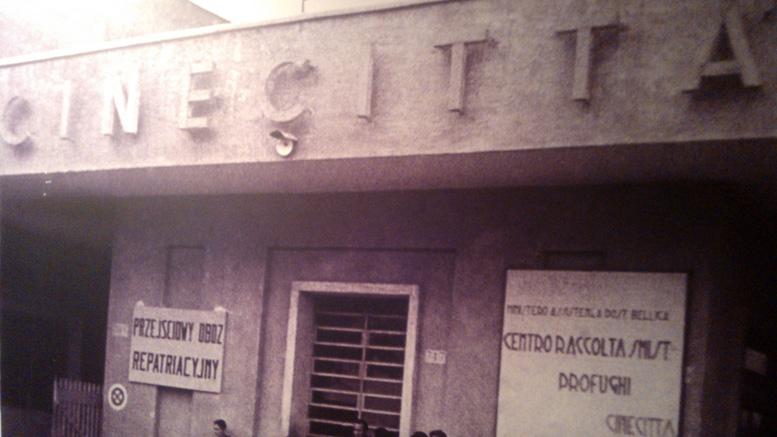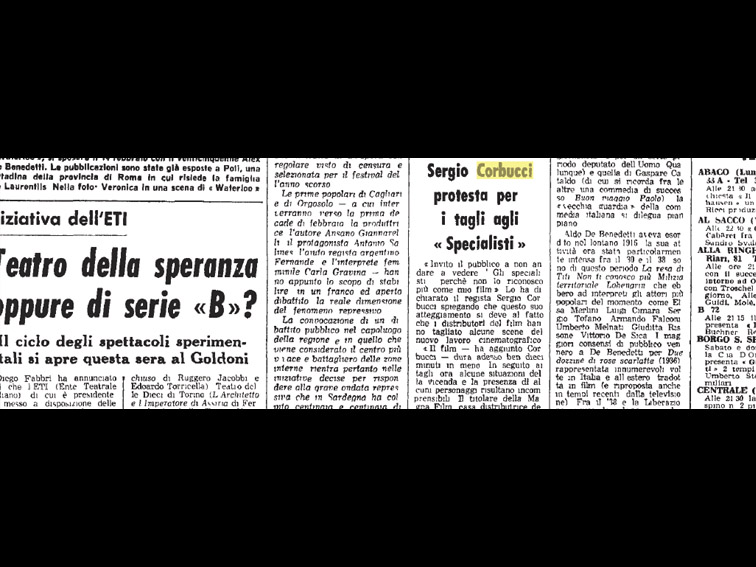Taken from La Stampa, 1961
Il rossetto, directed by Damiana Damiani, with Pierre Brice, Laura Vivaldi, Bella Darvi, Giorgia Moli, Pietro Germi. Italian, drammatico. (Cinema: Doria).
There are a wealth of examples of films featuring children unknowingly at the mercy of criminals. But citations would be useless because the young girl here, 13 year old Silvana, and the young but adult man Gino, who is suspected of murder, have another, more nuanced relationship. It’s not just a case of whether Gino is guilty of the crime or not and to see how the police manage to establish the facts, but also to look into the heart and mind of a teenager caught in that difficult period when they’re no longer a child but also not yet a woman.
It’s all constructed as a giallo but, as with the idea of Germi’s Maledetto imbroglio, it’s vigorously grafted onto and often dominated by this psychological investigation into a difficult topic: the disturbing precocity of our youth and the symptomatic values and the disturbing actions attributable to it.
It must be said that the director Damiani, despite the ruthlessness of his study, manages to avoid an approach of “say the disease, but come to comforting conclusions”. Silvana is not a ‘Lolita’, even if she is infatuated with Gino to the point of threatening to tell of seeing him leaving the apartment of the victim and hiding some lipstick in her purse. Her reticence when the truth is discovered, do not show a girl who is a liar and already corrupt, as the paternal commissioner is also inclined to believe. She is just a little girl lost, growing up too fast in the unhealthy environment not only of her family, but also modern society in general. Behind her ostentatious audacity, there is a depth of modesty and kindness.
A study of the environment and the various influences that combine to form the embryo of personalities in Silvana and her friends could have given the film a broader subject, but even so it still represents a promising demonstration of the qualities of seriousness, especially since it is directed by a newcomer, although provided valuable help by the screenplay of Cesare Zavattini.
Sometimes, especially at the end, the police procedural takes over, but but it surpasses what is usually expected of a giallo and shows Damiani to be a director of skill. As is attested by the acting of the young Laura Vivaldi and other performers, whioch hits the right tone.. a. b.
Matt’s note: I’ve just watched this film, and considering it was Damiani’s debut it’s a remarkable acheivement; a kind of proto giallo /crime film with elements of neo-realism and links to the Italian new wave cinema of Bertolucci, Pasolini, Petri and so on. The key aspect is possibly the casting of Pietro Germi, as Damiani was a kind of natural successor as a director to Germi, with similar themes running through their work and dealing with a similar mix of generic formats and social realism. The performances by Pierre Brice (Winnetou himself), Laura Vivaldi and Giorgia Moll are also very good. As a trivia note: a lot of press reports around the time refer to Damiani as ‘the Italian Hitchcock’. I’ve heard the same appellation in connection to Bava and Argento, but it’s interesting to see it being used for Damiani as well.

